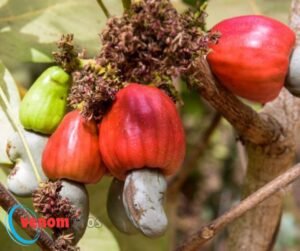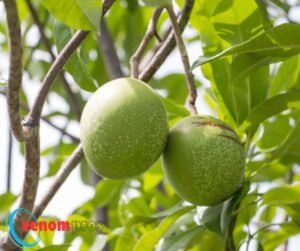
fruits and vegetables
In an era where scientific research continually pushes the boundaries of human knowledge, recent studies have revealed that certain natural compounds may have remarkable medicinal properties. One such compound, rutin, a flavonoid commonly found in fruits and vegetables, has recently been shown to protect mice against the harmful effects of snake venom. This groundbreaking research not only highlights the potential of natural products in medicine but also opens up new possibilities for snakebite treatments, particularly in areas where access to antivenom limited.
The Global Snakebite Crisis
Despite the severity of the problem, snakebite treatment has remained relatively unchanged for decades. Antivenoms, which are created by injecting small amounts of venom into animals and collecting the antibodies they produce, are currently the only effective treatment. However, antivenoms have several drawbacks: they are expensive, require refrigeration, can cause allergic reactions, and are not always accessible in remote areas.
The discovery of alternative or complementary treatments, particularly those based on widely available natural compounds, would mark a significant step forward in addressing this pressing issue. Enter rutin—a compound already recognized for its various health benefits.
What Is Rutin?
Rutin, also known as rutoside, is a type of flavonoid, a class of plant-based compounds with powerful antioxidant and anti-inflammatory properties. Found in foods like apples, citrus fruits, berries, and buckwheat, rutin has long been celebrated for its role in promoting cardiovascular health, reducing inflammation, and improving.
The Study: Testing Rutin’s Protective Effects
Researchers at a prominent university undertook a study to explore whether rutin could offer protection against snake venom. The experiment involved administering rutin to mice before exposing them to the venom of a common snake species known for its potent toxins, such as that of the pit viper. The venom contains enzymes like metalloproteinases, which break down tissue and disrupt normal blood clotting, leading to extensive tissue damage, hemorrhage, and, if untreated, death.
The researchers divided the mice into two groups: one group was pre-treated with rutin, while the other group received a placebo. After exposing the mice to venom, the team closely monitored the outcomes, including the extent of tissue damage, survival rates, and other health indicators such as inflammation and blood clotting.
The results were astonishing. Mice that were pre-treated with rutin exhibited significantly less tissue damage, reduced inflammation, and lower mortality rates compared to the control group. The flavonoid appeared to work by inhibiting key enzymes in the venom that cause tissue destruction and clotting abnormalities, effectively neutralizing some of the most dangerous effects of the venom.
Mechanism of Action
The study found that rutin primarily works by blocking the activity of snake venom metalloproteinases (SVMPs), which are among the most dangerous components of venom from snakes such as vipers and rattlesnakes. SVMPs are responsible for degrading the extracellular matrix, the scaffolding of cells and tissues, leading to hemorrhage, inflammation, and necrosis. Rutin binds to these enzymes and inhibits their destructive activity.
Additionally, rutin’s antioxidant properties help prevent further damage caused by oxidative stress, a process where venom-induced free radicals lead to cellular damage. By reducing inflammation and strengthening blood vessels, rutin limits the spread of venom through the body, giving the immune system a better chance to fight off its effects.
Implications for Snakebite Treatment
This research has significant implications, particularly for low-income regions where access to medical care and antivenom is limited. While antivenoms will likely remain the first-line treatment for snakebites, natural compounds like rutin could serve as valuable adjunct therapies. In areas where people cannot reach a hospital in time or where antivenom supplies are scarce, rutin-based treatments might offer a practical and affordable alternative.
Moreover, the oral availability of rutin adds to its potential. Rutin is already used as a dietary supplement for its cardiovascular benefits, and it could easily be incorporated into preventive strategies or emergency treatments for snakebites, particularly for fieldworkers, farmers, and other high-risk groups in rural communities.
The Broader Potential of Flavonoids
This study also highlights the broader potential of flavonoids in treating venomous bites and stings.gainst various types of venom. Given that flavonoids are abundant in fruits, vegetables, and herbs, their use in traditional medicine as remedies for snakebites and other envenomations is not entirely new. What is new, however, is the scientific validation of these remedies, opening the door to modern formulations based on natural compounds.
Future Research and Development
Although the study on rutin’s protective effects in mice is promising, more research is needed before it can be applied to humans.Additionally, researchers must investigate the proper dosage, delivery methods, and timing for maximum benefit. There may also be variations in how different species of snakes respond to rutin, as venoms vary widely in their composition.
Nevertheless, this discovery offers a new avenue for snakebite treatment that could complement existing therapies and save countless lives worldwide. In addition, this research underscores the need for a multidisciplinary approach that brings together the fields of pharmacology, toxicology, and traditional medicine.
Conclusion
The discovery that rutin, a common flavonoid found in fruits and vegetables, can protect mice from the lethal effects of snake venom represents a breakthrough in the fight against snakebite envenomation. While antivenoms will remain essential, rutin offers a promising complementary treatment, especially for those in rural areas with limited access to healthcare. The potential of rutin and other flavonoids in treating venom-related injuries further highlights the medicinal value of natural compounds, suggesting that the future of snakebite treatment may lie, in part, in nature’s own remedies. As research continues to unfold, rutin may one day be a life-saving solution for millions around.
Also read this;>Tessalon Perles, Often Prescribed and Potentially Dangerous







